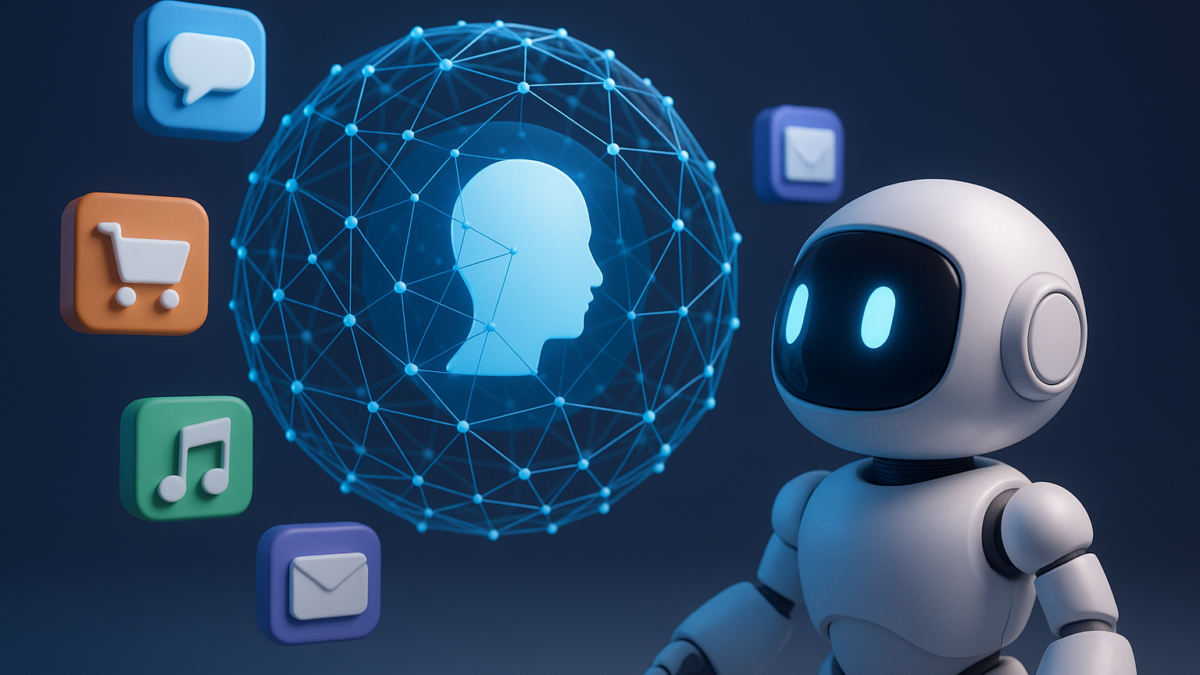The Agentic Internet: How Autonomous AI Agents Will Replace Apps in 2025
The internet as we know it is on the brink of a massive transformation. For decades, users have relied on apps and websites to interact online—booking tickets, ordering food, scheduling meetings, or buying products. But in 2025, a new paradigm is emerging: the Agentic Internet.
Instead of tapping through apps, autonomous AI agents will soon act on your behalf—understanding your intent, negotiating with other agents, and completing tasks seamlessly. As Business Insider reports, major AI companies like Google, OpenAI, and Anthropic are racing to build the digital rails for this new ecosystem.
This blog explores what the Agentic Internet is, how it will replace apps, its impact on businesses and developers, and what the future of online interactions could look like.
What Is the Agentic Internet?
The Agentic Internet refers to a new layer of the web powered by autonomous AI agents. Instead of users manually opening apps or browsing websites, intelligent agents will interpret instructions and execute tasks across the digital ecosystem.
Example Scenarios:
- Instead of opening Uber, your AI agent books you the cheapest, safest ride automatically.
- Instead of searching five travel sites, your agent negotiates the best flight and hotel deal.
- In B2B, an AI agent may automatically reorder supplies when inventory runs low.
In short, the agentic internet moves beyond apps to a task-oriented, intent-driven web.
Why Apps Are Becoming Obsolete
Apps aren’t going away overnight, but their dominance is fading. Here’s why autonomous agents are more compelling:
- Frictionless Experience: No need to download, sign in, or switch between apps.
- Task-Centric, Not App-Centric: Users focus on outcomes, not platforms.
- Interoperability: Agents talk to each other, crossing app boundaries.
- Personalization: Agents know your preferences, history, and context.
- Efficiency: Faster, cheaper, and more scalable than human-managed interactions.
Key Technologies Driving the Agentic Internet
1. Large Language Models (LLMs)
Models like GPT-5 and Anthropic’s Claude enable natural language understanding and intent parsing.
2. Multi-Agent Systems
Networks of AI agents collaborate—negotiating, scheduling, and problem-solving together.
3. Agentic Protocols & APIs
Companies are building standardized rails that allow agents to interact across services securely.
4. On-Device AI
With Apple, Qualcomm, and NVIDIA pushing on-device AI, agents can process data privately without cloud dependency.
5. Blockchain & Smart Contracts
Decentralized rails for agent-to-agent trust, payments, and digital ownership.
Business Impact of the Agentic Internet
1. Disruption of App-Based Business Models
- App downloads, ad impressions, and in-app purchases may decline.
- Agents bypass app UIs to complete tasks directly.
2. New Revenue Streams
- Businesses may monetize agent-accessible APIs instead of user-facing apps.
- Subscription models could shift toward agent services.
3. Competitive Advantage for Early Adopters
- Brands that adapt first will gain visibility in the agentic ecosystem.
- Imagine being the “default vendor” an AI agent selects for services.
4. Marketing Transformation
- SEO evolves into Agent Optimization: making your content accessible to AI agents.
- Instead of competing for human clicks, brands will compete for AI recommendations.
Implications for Developers
1. From Apps to APIs
Instead of designing UIs, developers must focus on intent-friendly APIs that agents can interpret.
2. Emphasis on Security & Trust
Agents will need zero-trust architectures, cryptographic verification, and transparent data handling.
3. New Developer Tools
Expect SDKs from OpenAI, Google, and Anthropic tailored to agent development.
4. Ecosystem Shifts
Platforms may evolve into agent marketplaces, where developers publish and monetize autonomous services.
Benefits of the Agentic Internet
- For Consumers: Convenience, time savings, personalized experiences.
- For Businesses: Automated transactions, lower acquisition costs, better customer targeting.
- For Developers: New frameworks, APIs, and monetization strategies.
Challenges and Risks
1. Trust & Transparency
How do users trust that agents act in their best interest and not in favor of vendors?
2. Privacy Concerns
Agents will handle sensitive personal and business data. Compliance is critical.
3. Security Risks
Autonomous agents could be exploited if not governed properly.
4. Regulation
Governments may step in to ensure ethical agent interactions and data fairness.
Future Outlook: Life in the Agentic Internet
By 2030, the agentic internet could become the default mode of digital interaction. Instead of downloading hundreds of apps, users may rely on a single personal AI agent to:
- Manage finances.
- Handle B2B negotiations.
- Shop, book, and schedule.
- Act as a true digital concierge.
For businesses, success will depend on agent visibility—the ability to make your services discoverable and preferred in an AI-driven ecosystem.
Conclusion
The agentic internet represents the biggest shift in digital interaction since the rise of the smartphone. By replacing apps with autonomous AI agents, it promises frictionless experiences, personalized interactions, and a new layer of intelligence across the web.
For businesses and developers, the time to adapt is now. Build agent-accessible APIs, embrace transparency, and optimize for AI-driven discovery.
See Also: AI Recruiting Assistants: How Virtual Agents Are Transforming Talent Acquisition in 2025





